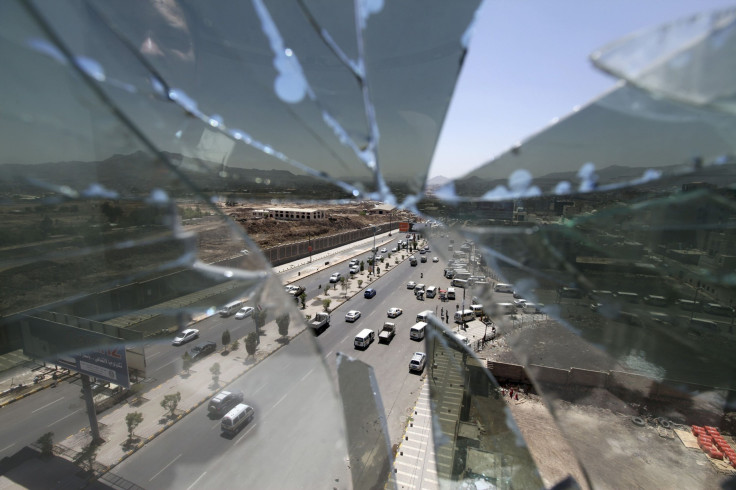Militant Car Bomb Targets Houthi Base In Yemen, 15 Dead: Sources

SANAA (Reuters) -- A suicide bomber linked to al Qaeda drove a car laden with explosives into a hospital used as a base by Yemen's Shiite Muslim Houthi movement Sunday, killing at least 15 people, various sources said.
The attack took place in the town of Majzar in Maarib province, east of the capital Sanaa, militant, tribal and local sources said.
Houthi fighters seized Sanaa on Sept. 21 after four days of fighting with soldiers loyal to the Sunni Muslim Islah party. They have since refused to quit the capital, despite an agreement they signed with President Abd-Rabbu Mansour Hadi to make them a part of the government.
"Dozens of dead and wounded from the rejectionist Houthis in a martyrdom operation by Ansar al-Sharia using a booby-trapped car in Maarib," the militant group, which is the local branch of Al Qaeda in the Arabian Peninsula (AQAP), said in a statement on its Twitter account.
The group said the target was al-Jafra hospital, which had been turned by the Houthis into a base for their operations in the area. Local tribesmen said at least 15 people were killed in the attack and more than 50 were wounded.
There was no immediate word from the Houthi, who are named after the tribe of their leader and founder.
Ansar al-Sharia had previously carried out numerous attacks on military and civilians installations of the U.S.-allied Yemeni government. But the group, which adheres to an austere brand of Sunni Islam which views Shi'ites as heretics, has turned its attention to the Houthis after they captured Sanaa.
Last week, they said they carried out a similar attack on the Houthis in their northern stronghold of Saada province, in which dozens were killed or wounded.
The stability of Yemen is a priority for the United States and its Gulf Arab allies because of its position next to Saudi Arabia and shipping lanes which run through the Gulf of Aden.
Saudi Foreign Minister Prince Saud al-Faisal told the U.N. General Assembly on Sunday that the situation in Yemen posed a threat to international security, and said the agreement to form a new government had been wrecked by the Houthis' failure to give up control of the capital.
The Houthis captured Sanaa after overrunning an army brigade affiliated to the moderate Islamist Islah party, making them effectively the power brokers in the country.
Their Zaydi Shi'ite sect is related to, but separate from the sect the rules Iran. They make up 30 percent of Yemen's population of 25 million and ruled a kingdom there for 1,000 years. But they have complained of being marginalized since their last king in Sanaa was overthrown in a 1962 revolution.
© Copyright Thomson Reuters 2024. All rights reserved.




















